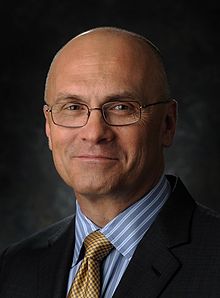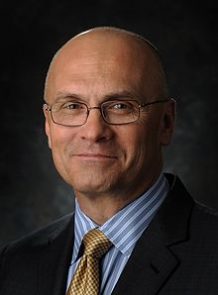Five Things You Should Know About Andy Puzder

 President-elect Trump has announced his choice for the Department of Labor–Andy Puzder, a fast food CEO who opposes common-sense worker protections at every turn. Here are five reasons why you should be concerned about this nominee, whose company—CKE Restaurants, which owns Carl’s Jr. and Hardees— has been on the hook for violating the same labor laws he would be in charge of enforcing as Secretary of Labor. And because five just isn’t a big enough number, we have one kicker of a bonus reason too.
President-elect Trump has announced his choice for the Department of Labor–Andy Puzder, a fast food CEO who opposes common-sense worker protections at every turn. Here are five reasons why you should be concerned about this nominee, whose company—CKE Restaurants, which owns Carl’s Jr. and Hardees— has been on the hook for violating the same labor laws he would be in charge of enforcing as Secretary of Labor. And because five just isn’t a big enough number, we have one kicker of a bonus reason too.
1. Puzder opposes expanding access to overtime pay – and his businesses have repeatedly violated wage and hour laws.
Puzder has been a vocal critic of the Department of Labor’s overtime rule, which would allow many more low-wage and middle-class workers — including Puzder’s employees — to be eligible for overtime pay. Puzder has argued that the overtime rule would remove the “incentive” for low-paid managers to work long hours without overtime pay in order to advance their careers.
Puzder has repeatedly had to settle claims alleging workers at Hardee’s and Carl’s Jr. weren’t paid overtime for the hours they worked, paying out millions of dollars over the past decade in wage theft cases. The Secretary of Labor is supposed to enforce wage and hour laws, not violate them.
2. Puzder opposes raising the minimum wage.
Puzder is a vocal opponent of raising the minimum wage. This millionaire argues that raising the minimum wage would hurt job growth, despite the breadth of research that shows minimum wage increases on the state and local level increase earning for low-wage workers without hurting job growth or reducing employment.
3. Puzder opposes basic workplace safety protections – and runs restaurants that routinely violate these protections.
Puzder has complained that protections like rest and meal break requirements for workers are inconvenient for business, and Puzder’s restaurants also have a track record of being dangerous for workers. Since 2000, Hardee’s and Carl’s Jr. have received over 98 safety violations, including 36 “serious” violations from the Occupational Safety and Health Administration (OSHA). OSHA defines “serious” as violations that could result in death or serious harm to employees. OSHA is one of the many agencies within the Department of Labor that Puzder would oversee.
4. Puzder built his brand on objectifying women for profit.
Carl’s Jr. and Hardee’s ads are based on sexist and hypersexualized portrayals of women, and Puzder likes it, “I like beautiful women eating burgers in bikinis. I think it’s very American,” adding, “I used to hear, brands take on the personality of the CEO. And I rarely thought that was true, but I think this one, in this case, it kind of did take on my personality.” In fact, he says he takes issue when people aren’t offended – “If you don’t complain, I go to the head of marketing and say, ‘What’s wrong with our ads?’”
As someone who could run the agency responsible for investigating claims of sexual harassment and gender discrimination by federal contractors, this is a worrying track record.
5. Puzder wants to replace your job with a machine to avoid having to worry about respecting workers’ legal rights.
Just this year, Puzder went on record saying he was interested in replacing workers with robots as a way to avoid having to deal with worker protections: “[Machines are] always polite, they always upsell, they never take a vacation, they never show up late, there’s never a slip-and-fall, or an age, sex, or race discrimination case.”
The Secretary of Labor is supposed to protect workers– not replace them with machines.
*Bonus Round* (Because we couldn’t fit this guy’s track record into just 5 points.): Before Puzder violated labor laws as a business owner, he drafted a landmark law that restricted abortion access.
In Missouri, Puzder drafted one of the early laws that defined life as beginning at conception, in an attempt to chip away at Roe. v. Wade. The law was challenged, and was upheld by the U.S. Supreme Court, restricting women’s abortion rights. Puzder’s law set a dangerous precedent threatening access to reproductive healthcare for an entire generation of women.




